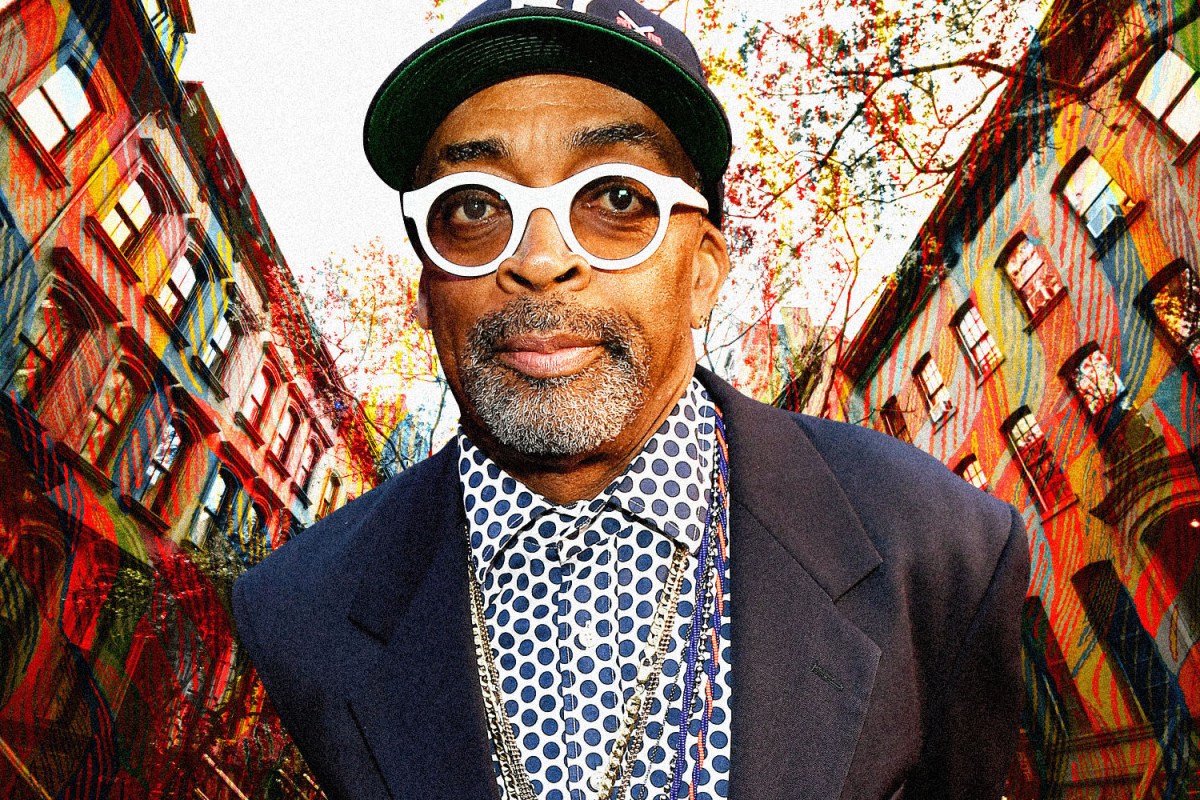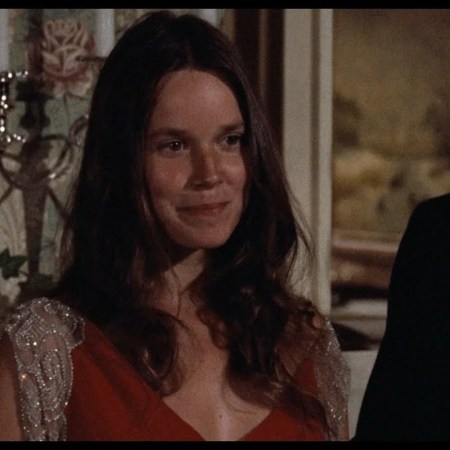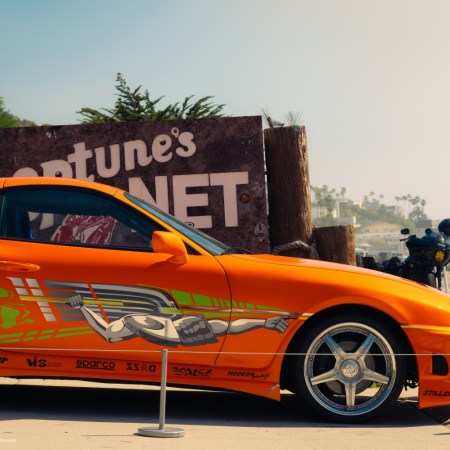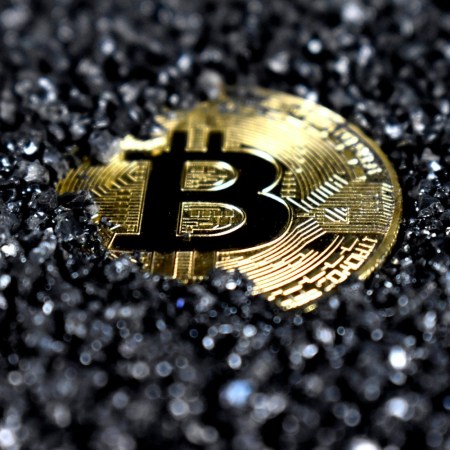Whether it’s his 1986 indie breakthrough She’s Gotta Have It, 1992’s historical Malcolm X or the six-time Oscar-nominated BlackKklansman, from 2018, Spike Lee brings us into often overlooked corners of history, some of which otherwise wouldn’t make it to the big screen.
Now, at 63, Lee is turning his lens to the Vietnam War with his latest film Da 5 Bloods, premiering on Netflix this Friday. The film follows four African American war veterans, including Chadwick Boseman (Black Panther) and Delroy Lindo (Crooklyn), who both served in the army as teenagers.
Set in modern Trump-era America, the four vets make a reunion trip to Vietnam to find the remains of their fallen squad leader (played by Boseman) while hunting for buried treasure. In the process, Lee unearths a wealth of detailed black war history, from Crispus Attucks (the African American docker who was the first casualty of the American Revolution) to interviews with Muhammad Ali to the speeches of Dr. Martin Luther King, Jr., all of it revisited from the POV of Black soldiers, a group that has been broadly underrepresented in cinema’s considerable Vietnam canon.
The film is as fun as it is informative: shot in Thailand and Vietnam, it’s set to a Marvin Gaye score, with poetic interludes and trademark Lee moments (still photography with narration, musical interludes, personal history backstories, flashbacks shot in 16mm). It plays with the timeline of past and present to show how the soldiers recovered from post-war unemployment, homelessness and post-traumatic stress disorder. “We knew that we had not seen brothers like this in a Vietnam film,” Lee tells InsideHook.
While “Bloods” was a brotherly term between African American soldiers, a casual term of camaraderie, it shows another way they were bound together, how Black soldiers, which made up a disproportionate number of Vietnam deployments and casualties, dealt with systemic racial discrimination. It’s what Lee says, “robbed them of respect and economic mobility.”
On the phone from his home on the Upper East Side, the filmmaker spoke to InsideHook about the magic of Marvin Gaye, family vets and why he calls Donald Trump “Agent Orange.”
InsideHook: What can you say about the state of the world right now?
Spike Lee: Well, the fact that our young generation of white people join their Black and brown brothers and sisters to march all across America, in the big cities and the towns, even where there are no Black or brown people at all, is encouraging. For example, Salt Lake City, Utah, or Des Moines, Iowa, where these marches go down, gives me hope. I haven’t seen this since I was a kid, in the mid-1960s in Brooklyn, when I was 10 years old. I was 11 when Dr. Martin Luther King got assassinated. I remember it.
How do you feel New York City is being handled?
New York is represented, no doubt. Queens is represented, the people’s republic of Brooklyn is represented. They’re all represented, all the boroughs.
People are saying your new film, Da 5 Bloods, is arriving just when America needs it. Can you see why?
Yeah, Black people are still being murdered. No disrespect to any film that’s been done before about the Vietnam War, but we wanted to do this through the perspective of the Black soldiers. [Spike’s writing partner] Kevin Willmott and I felt that the premise was fantastic. We knew that we had not seen brothers like this in a Vietnam film.
As a historian, you’re bringing to light a piece of overlooked history with the Vietnam War …
I’m a big historian. I was taught that African Americans fought for this country from day one, that Black soldiers fought in the Vietnam War. Crispus Attucks, born 1723, who died in 1770, was an African American Man killed during the Boston Massacre, and was the first victim of the American Revolution. Black infantrymen were known as Buffalo Soldiers during the Second World War. We’re still fighting for this country today.
The characters in the film talk about a “reality TV president.” Is that a call for change?
Well, Agent Orange — who I don’t call by his name, and I have to give love to my brother Busta Rhymes, who came up with that nickname — made a cameo at the end of BlacKkKlansman, and he’s making another cameo at the end of this film, too.
Did you have to be careful with that?
Careful how? Like he’s going to sue me?
You’re not someone who censors yourself, so I wouldn’t imagine you doing that …
I had no second thoughts about putting Agent Orange in BlacKkKlansman and Da 5 Bloods, because I’m not going to get an actor to try and play him. He’s just doing what he does.
But it still has an impact, emotionally, with a MAGA hat appearing in the film.
Yes, if you put that hat anywhere, you’re going to get one of two reactions to it. To put it on a character in the film, who drank the orange Kool-Aid, it just has his other brothers in arms. By the end of the film, the audience is going to really empathize with him, and see that the man’s not in his right mind.
Do you have an opinion on African Americans who do vote for Trump? Like Diamond and Silk?
They drank the orange Kool-Aid and they’re a very small number.
What message do you hope this film will deliver to people?
I hope that people are moved by this film, I hope they learn from this film, and understand that is not just a film about the Vietnam War, it’s a film about what is happening today. Its about black, red, brown and white all marching today.
Despite the protests, you’ve said the George Floyd incident is nothing new.
Not new at all, we’ve been here 400 years. On August 20, 1619, the first ship arrived with enslaved Africans in Jamestown, Virginia, and we’ve been going through hell since then. Holy hell.
There are musical interludes featuring Marvin Gaye in Da 5 Bloods. What does he mean to you as an artist?
The 11th Studio Album from Marvin Gaye, What’s Going On, was the film’s musical underpinning. It’s one of the greatest albums ever made. Marvin is a saint. He is godlike. That album spoke to us as the record of the time. I knew that this music would help the narrative. Marvin has made some of the greatest albums of all time, he’s a poet. That was the album, what Da 5 Bloods were listening to, that was their anthem. “What’s Going On?” and “Inner City Blues” was what those cats at war were listening to back then.
Where was the film shot?
Chiang Mai, Thailand, and Ho Chi Minh City, Vietnam.
Do you know anyone who fought in the Vietnam War?
Not firsthand, but before I showed the film to Netflix, I had four screenings for Black and Puerto Rican vets and they loved it. I’ve had the pleasure and the honor to screen this film for a lot of Black Vietnam Vets in the New York City area. For me, that was a thumbs up. It was very moving to hear them talk about the film and their experience. Many of them were teenagers when they got shipped away to kill people. For me, this is who I made the film for. They are our heroes, they put their life on the line at a very young age, getting drafted, to fight for a country that didn’t love them. And still some.
Do you think the George Floyd protests will encourage real lasting change, like police reform?
Ask me that on November 4.
Fatherhood is also a prominent theme in your new film. Is it about your relationship to your own dad?
My father wasn’t drafted in to the Second World War, but his two brothers, my uncle Clarence and Arnold, they were in WWII. They drove the trucks for General Patton’s army.
Did you hear any stories from them firsthand?
No, they never talked about it. I wouldn’t have known about it unless my father told me.
Maybe they wanted to forget it?
Rarely do these guys come back from war and talk about it. You have to really drag it out of them, they’re trying to forget it.
What are your plans for the summer?
I don’t know what I’m going to do tomorrow. That’s the attitude I’ve taken in this pandemic, day by day.
Do you go to the protests in New York?
I have my bike, I ride around.
With a face mask on, do people still recognize you?
People still seek me out. Even with a mask.
Do you have to stop and take selfies with the protesters?
I’m not there to be Spike Lee, I’m to be there amongst the people. I’m trying to be incognito. Wait — incog-negro. Ha!
This article appeared in an InsideHook newsletter. Sign up for free to get more on travel, wellness, style, drinking, and culture.
























